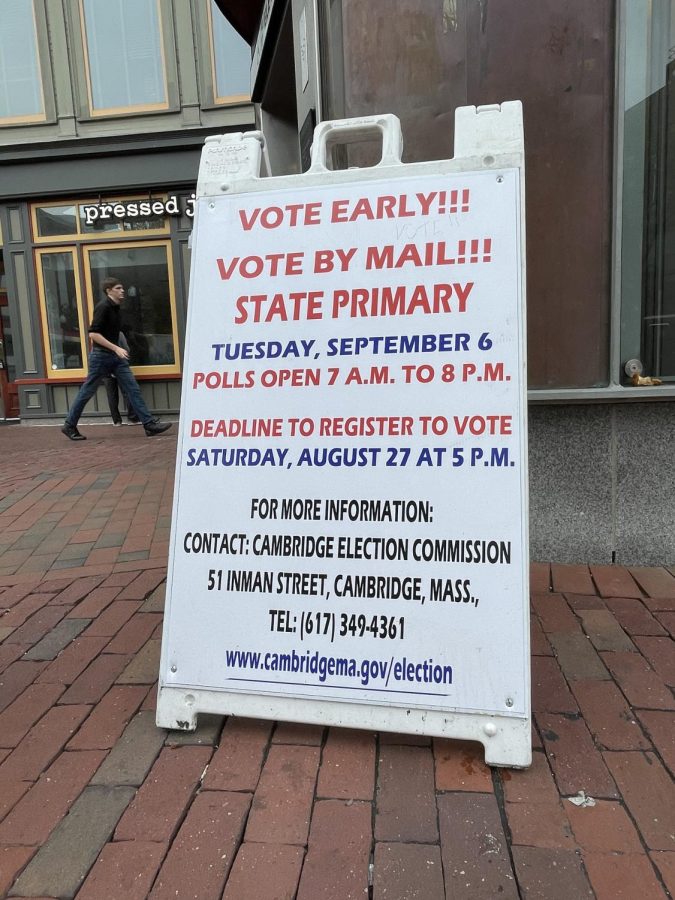Democrats Find Unlikely Gains Going into Midterm Elections
Traditionally, the ruling party tends to lose ground in midterm elections.
October 6, 2022
The summer is finally over, but the changes it brought mark one of the biggest rebounds for a presidential administration in recent history. The war in Ukraine, record inflation, and numerous Supreme Court cases have influenced the political environment in the US and across the world. However, after a rough start to 2022 for the Democratic party, the tides have turned going into the midterm season.
As every pundit has stated recently, the midterm elections are usually a referendum on the party in power. As the Democrats hold the House, Senate, and the presidency, this would usually be a vote on the state of the country under their party’s administration. It is customary that the ruling party generally loses ground in the midterms; for example, Republicans lost the house in 2018 during Trump’s presidency, and seeing as Democrats do not have much ground to give, we could end up with a full Republican majority in Congress. Democrats currently hold a slim majority in both the House and the Senate.
President Biden and Democrats in Congress had a surprisingly busy and acomplished summer.
However, after Roe v. Wade was overturned back in June, there has been an outstanding sentiment of frustration towards Conservatism and Republican ideals among the general voting population. Combined with this, President Biden and Democrats in Congress have had a surprisingly busy and accomplished summer, with four pieces of major legislation and one impactful executive order. Over the summer, Congress has successfully passed legislation on infrastructure, gun reform, and the economy, all of which have been key talking points for politicians for decades prior.
The Inflation Reduction Act also includes many climate change measures that have been heralded by the left, although some say they are not enough. When asked about the administration’s accomplishments, Adam Gould ’23 elaborated to the Register Forum on the criticism of the bill. “Although these are some great steps towards progress, much more is needed. It is time for people to start building climate resilience within their communities as the threat looms larger and politicians won’t save [us].”
The Bipartisan Safer Communities Act creates gun reform measures that have been debated for 30 years, and the Inflation Reduction Act includes many measures on the economy to attempt to mitigate the many economic crises we face today. Not to mention President Biden’s recent executive action to cancel $10,000 of student debt per person—$20,000 for pell grant recipients—which has majority support from voters (60%), according to a recent Data for Progress Poll.
This sentiment was certainly echoed around the CRLS community as well. Psychology and History teacher Lily Rayman-Read remarked to the Register Forum that she thinks while this is good, she “would like to see them do more [loan forgiveness] on a sliding scale rather than a one size fits all model.” This would entail forgiving more loans for people with lower incomes, creating a system that is more equitable.
These circumstances have the potential to mobilize a lot of voters for Democrats, in a way that is usually unprecedented in a midterm election for the party in power. As Senate and House campaigns focus on material issues like abortion rights and and protecting democracy, we have seen significant gains for Democratic candidates in polling and public opinion. This was recently demonstrated in two Republican-favored special elections that ended up both going Democratic. Mary Peltola beat Sarah Palin in Alaska’s house district and Pat Ryan beat Marcus Molinaro in New York’s 19th district. These upset victories for Democrats reflect a focus on abortion rights and general distaste for conservative policies after the many Supreme Court rulings in June. This reflection is a good sign for Democrats going into November, although Republicans still have a significant foothold in the vote. In recent years, Democratic campaigns have focused on general anti-Republican messaging but without much force or beliefs of their own. However, with this new wave of issue-first messaging, there is a lot of potential for Democrats to capitalize on the current political climate. Their base is ready to be mobilized, they just have to find the right message.
This article also appears in our September 2022 print edition.











